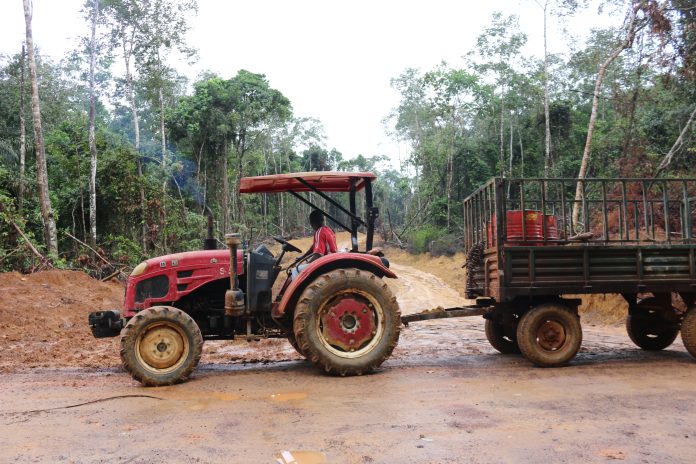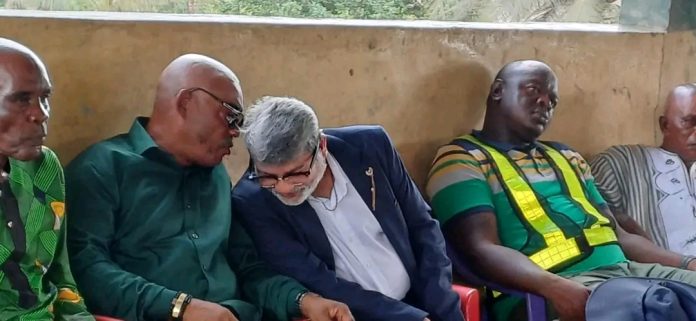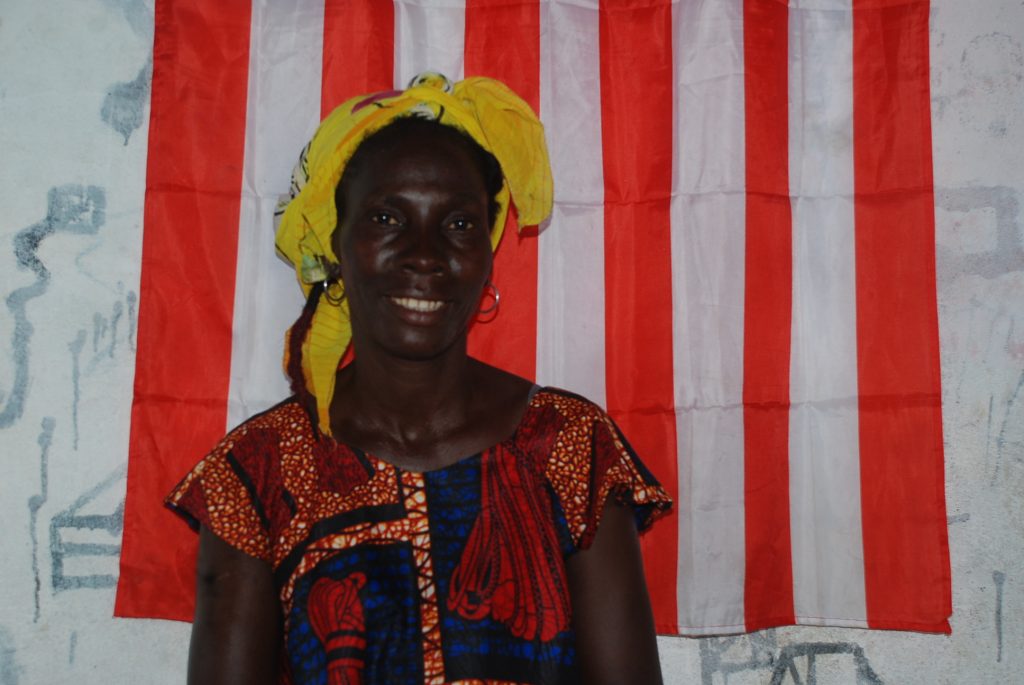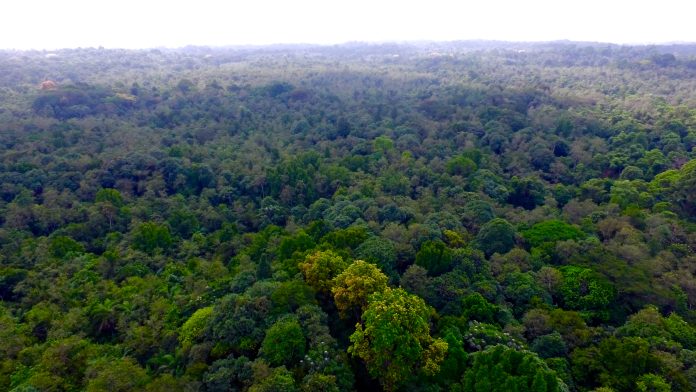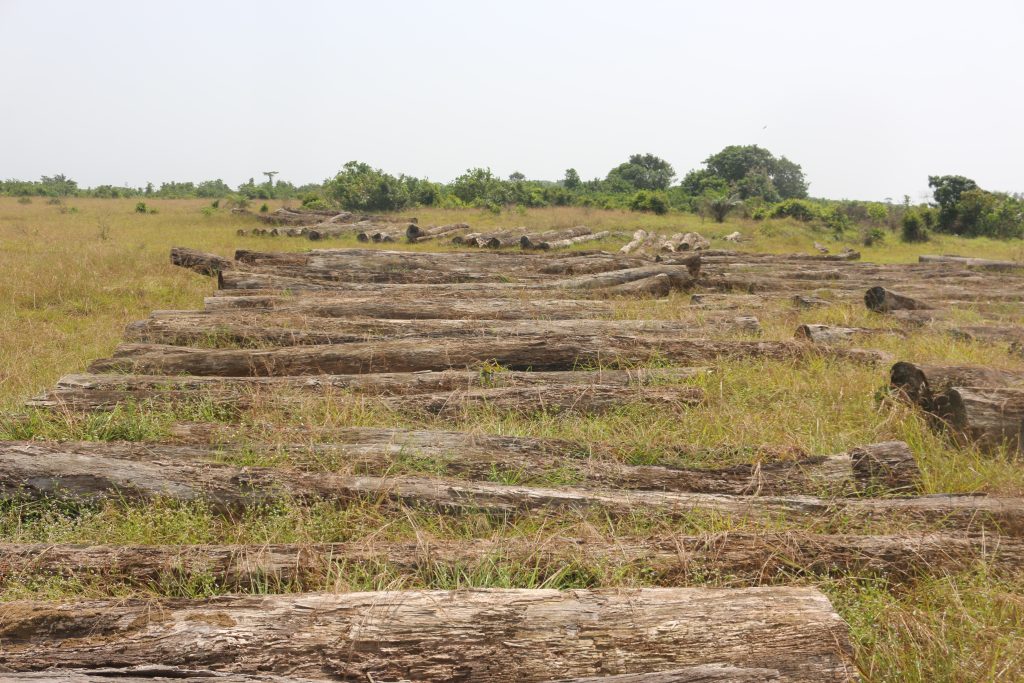Top: An operator in a Sinoe County Forest in 2017. Picture credit: James Harding Giahyue
By Varney Kamara
MONROVIA – Forestry authorities have approved a logging contract for African Finch Logging Limited, despite the company’s unknown ownership and link to a Sinoe lawmaker.
Following The DayLight series in April and May, African Finch operations appeared to have been temporarily halted. However, some five months later, it is on the verge of harvesting logs in the 18,000-hectare forest.
In a video, an African Finch earthmover is seen making a road in the Numopoh Community Forest, while two Asian men supervise. Also, Forestry Development Authority (FDA) records show that the company paid US$500 for timber identification tags.
This development indicates that the FDA and the Liberia Business Registry ignored findings of a DayLight series of the company’s illegalities.
The DayLight series found that the African Finch did not declare its owners, a legal requirement. The Business Association Law and the Beneficial Ownership Regulation require all firms to declare their ultimate beneficial owners, the people who own them. Meant to combat financial crimes and conflicts of interest, the regulation requires firms to disclose politically exposed persons.
Also, The DayLight found that African Finch forged a UAE certificate, which it used to register in Liberia.
The document in question contains a passport with the identification number 167557. However, using artificial intelligence and manual checks, reporters determined the passport did not match known samples of a UAE passport. UAE passport numbers typically consist of eight digits, including letters, and not six as on African Finch’s document.
Second, the certificate was issued by the UAE’s free-trading zone on August 11, 2020. This establishes that the certificate had expired for nearly four years when African Finch used it to register in Liberia last year.
The evidence suggests that the forgers intended to use 2020 to make the document appear legitimate. However, what they apparently did not realize was that a UAE certificate typically lasts for only a year.
The DayLight found another inconsistency in African Finch’s purported UAE certificate. The document lacks QR codes and barcodes, key features on known UAE business certificates for verifying a company’s legal status.
Hidden ownership
In its underhand filing in Liberia, African Finch names Finch General Trading, registered in the UAE free-trade zone, as its parent company. The UAE free-trade zone is a red flag in itself, a haven for shell companies to avoid taxes and conceal their ownership.
But reporters established that Finch General is not even recorded in the UAE free-trade zone registry. Similarly, checks in the UAE official, general database yielded no results. Further checks in the Organized Crime and Corruption Reporting Project (OCCRP) Aleph, one of the world’s largest databases of companies, were the same.
Now, reporters turned to Finch General’s website, which is hosted by NameSilo, known to hide firms’ identities. Turns out the address on that website belongs to another company, while verification directs users to an unofficial site. Finch General restricted access to the website following The DayLight series.
Faking the UAE document constitutes forgery, a crime under Liberian law. Moreover, using that document to obtain a forestry contract constitutes perjury or lying under oath, according to the Regulation on Bidder Qualifications.
The African Finch did not respond to queries about its concealed ownership and forged documents, and maintained that posture throughout.
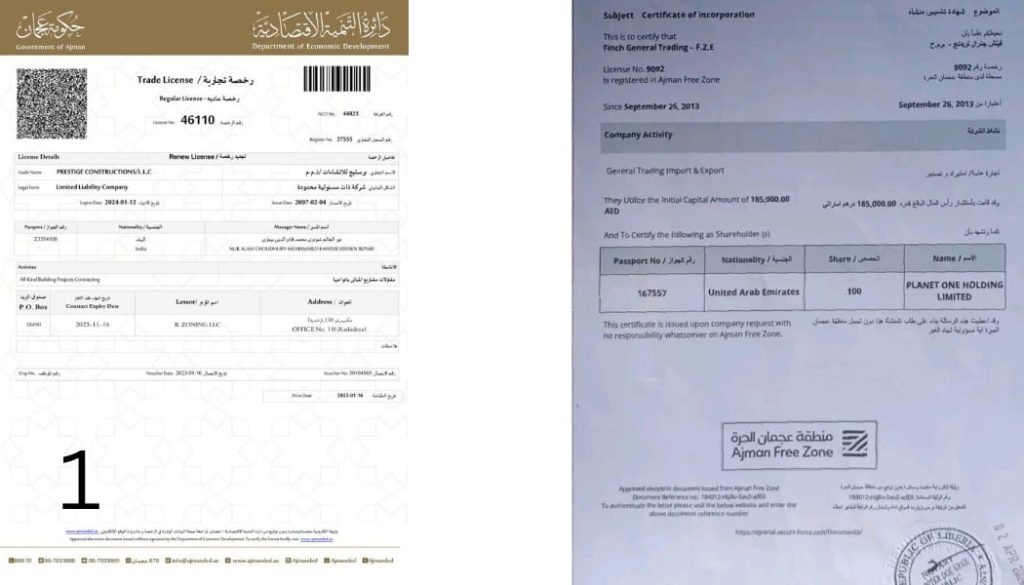
“We don’t have any response for you,” Kwadjo Asabre, an official of the company, said in April. “We do not support mischief and dishonest publications. It’s cowardice.
“Don’t text me again.”
Similarly, the FDA and the Liberia Business Registry did not return questions about African Finch’s shadowy ownership and fake credentials. The newspaper has now filed a freedom of information request with the FDA, the beginning of a legal procedure.
Link to a Lawmaker
In August last year, the FDA approved Numopoh Community Forest’s request to terminate its contract with Delta Timber Corporation. Numopoh and Delta had signed the deal in 2016. Delta, owned by Gabriel Doe, a former presidential adviser during the Charles Taylor regime, had had unsettled debt and abandoned thousands of logs to rot.
After terminating Delta’s contract, Numopoh signed an MoU with African Finch—but not without the help of Representative Romeo Quioh of Sinoe’s District #1.
The DayLight series revealed that Quioh allegedly coerced and bribed locals into signing the deal the same day it was introduced, violating their right to consent. Townsfolk claimed he directly and indirectly gave them L$3,000 and L$5,000. A townsman said he walked out of the signing ceremony in disagreement with Quioh.
Townspeople alleged Quioh brought African Finch to Numopoh in fulfillment of an election pledge to bring jobs to his constituency.
“This whole thing is part of that big promise he made to the community during the campaign,” said Alex Sanwon, a prominent Johnny Town resident.
The series determined Quioh was involved in a conflict of interest due to his connection with African Finch, a breach of the Code of Conduct for Public Officials.
Asabre, the African Finch executive, at least confirmed Quioh’s control of the company. He had told The DayLight in April to “Speak to [the] Hon” in response to company-related queries.
In an April Facebook post, Quioh denied that he had coerced or bribed the townspeople, but admitted to having a connection with the company.
“As… a member of the advisory board of the Board of Directors of African Finch Incorporation, my involvement in forestry-related matters is strictly within the confines of my legislative oversight responsibilities,” said Quioh in the post.
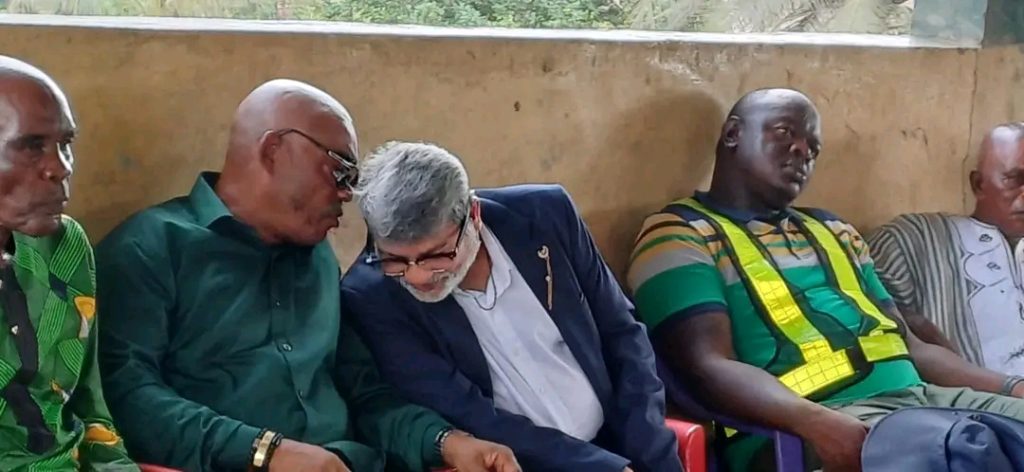
Quioh’s admission added to African Finch’s hidden human owners and the company’s unproven UAE status, leaving more questions than answers.
But before the dust settled on his admission, Quioh retracted his comments. He now claimed he had mistakenly written African Finch in the Facebook post, instead of Numopoh. He would omit “African Finch” and add “community forest management committee” to revise his rebuttal.
But the evidence contradicts Quioh’s claim. He mentioned multiple times in the Facebook post that he was an African Finch advisor, which is inconsistent with a mistake.
There were other inconsistencies in his retraction, too. A community forest management committee or an adviser does not exist in community forestry. What exists is an executive committee that supervises the daily activities of a community forest, of which a lawmaker is a member.
When contacted on African Finch’s operations amid its legal woes, Quioh declined to speak.
“Nothing… take any action deemed appropriate,” he said, before pulling a page from Asabre’s playbook. “Going forward, please don’t ever call me on any issues regarding African Finch and its activities.”
Illegal extension
The investigation revealed that the FDA extended the community forest from 7,200 hectares to 18,000 hectares without the participation of Numopoh’s neighbors, Tartweh, Wedjah and Wolee.
Excluding neighboring communities from the expansion violates the Community Rights Law of 2009. The law requires the FDA to notify affected communities, make radio announcements, and set aside 30 days for Numopoh and its neighbors to cut their boundaries and map Numopoh’s forestland. There is no evidence that those conditions were met.
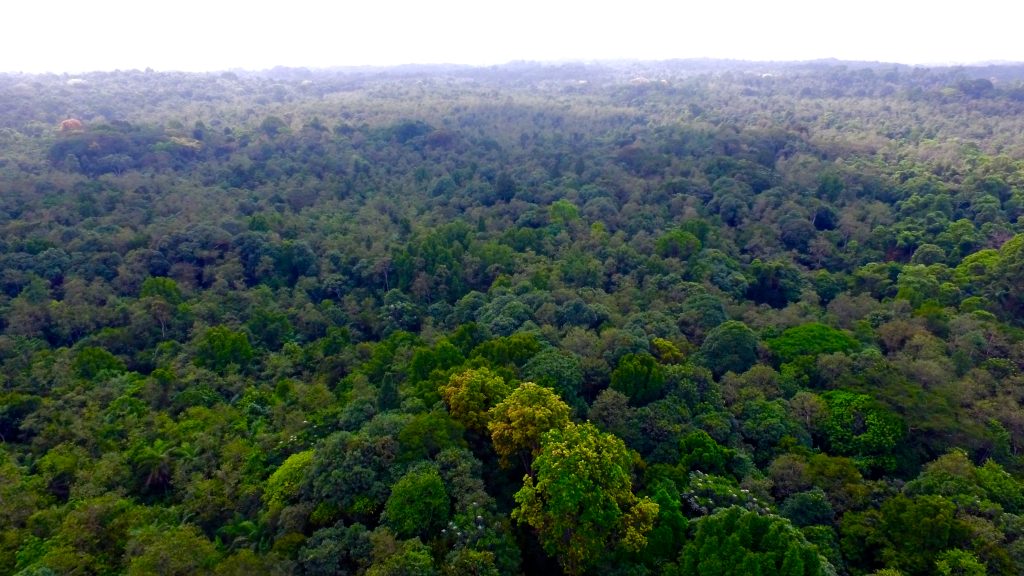
Kwankon Saytue of Tartweh-Drapoh Community Forest said, “I only got to know about the expansion from the signed MoU when somebody posted it on social media.”
Wolee, one of three sections making up the Du-Wolee Township in the Kpayan District, is taking action against the arbitrary extension. Numopoh and Du-Wolee are already locked in a decade-long dispute over a 463-hectare farmland, all three communities are claiming.
“We have protested about infringement on our land, and we asked them to stop,” said Abel Nyenswah, sectional head of Wolee. “The forest area the company entered belongs to us, but they are still paying deaf ears.”
Sam Kandie, a Numopoh forest leader, refuted Nyenswah’s comments, saying Numopoh had no forest boundary with Wolee. “It is a land boundary they have with Numopoh, not a forest boundary.” He did not address comments from Tartweh-Drapoh and Wedjah.
This story was a Community of Forest and Environmental Journalists of Liberia production.

